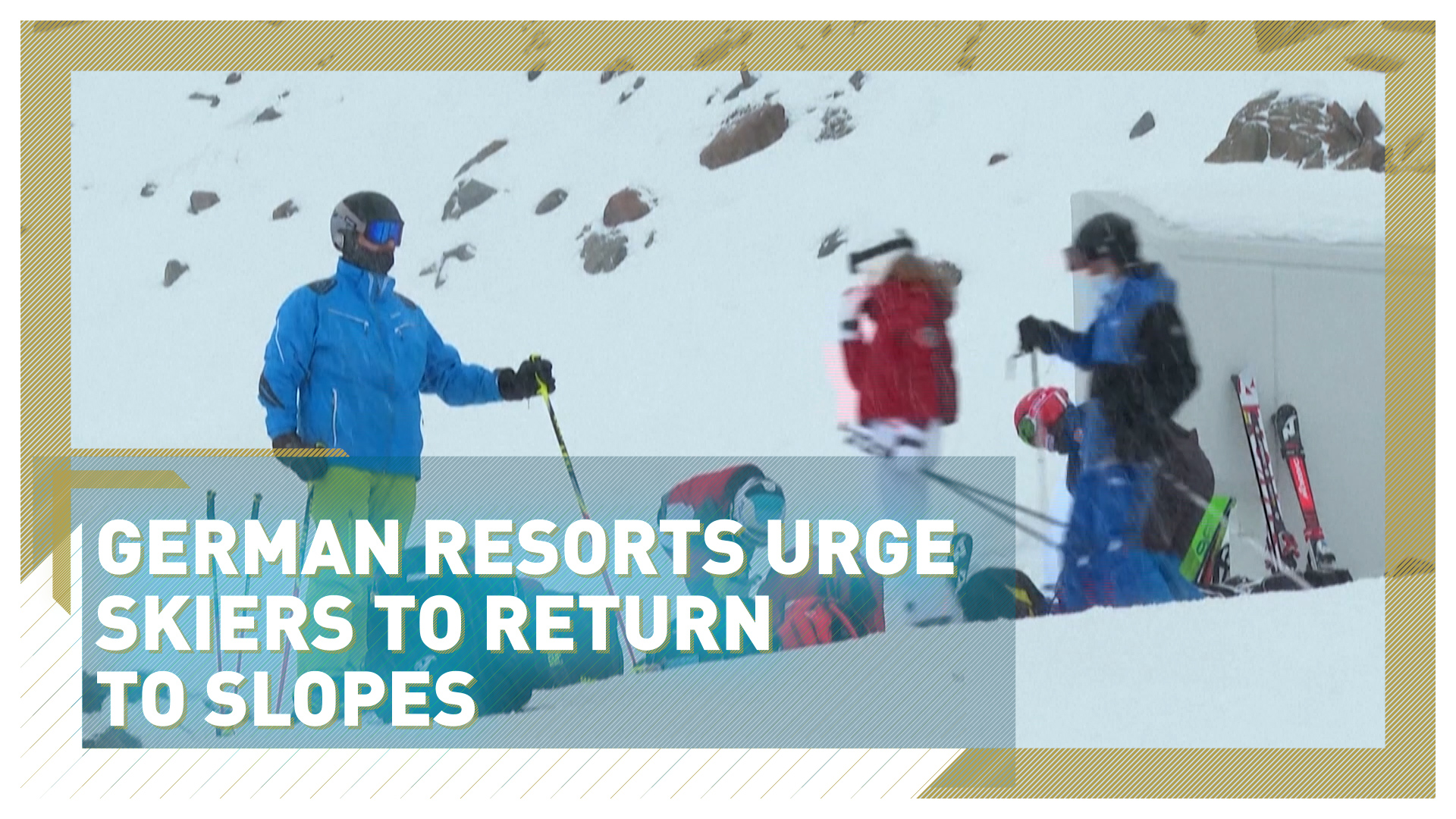The new year brought new hope of a promising season in Germany's winter sports sector.
Those who are vaccinated or have recently recovered from COVID-19 are again able to hit the slopes following nearly two years of severe coronavirus-related disruptions, which have devastated many alpine communities that financially depend them.
But revenues for 2020-21 have been slashed by COVID-19 closures.
Dominik Poschinger-Bray is the CEO and owner of Geisskopfbahn in the Bavarian Forest. This popular family-run winter area was started by Dominik's grandfather in 1967, but the 2020-21 season was like no other in the history of the business.
"Last year was really tough," he admits to CGTN.
"There were bad seasons in the past, sometimes no snow, sometimes more snow and you deal with that and build up reserves. But we were closed completely. We didn't have any day of open area here, which means we had basically zero revenue, the first time in the company's history."
This translates to around 60 percent of Geisskopf's annual revenue. The area usually welcomes more than 100,000 visitors for year-round sports.
"We are open summer and winter, which is already a plus for us," says Poschinger-Bray. "But when you lose 60 percent of your turnover, no business is coping with that well."
02:50

In the south of Bavaria, the beautiful ski region of Alpenwelt Karwendel was also hit hard by COVID-19 closures last season. In a normal year, the alpine playground welcomes about 250,000 guests and 1.2 million overnight stays. But without the hills, the restaurants, hotels and shops that depend on those tourists also lose out.
As well, according to Manuel Huber, the press spokesman for Alpenwelt Karwendel, the area also acts as a gateway to the bigger slopes on the Austrian side of the border, so COVID-19 regulations matter there, too.
"In our region, a closure of the ski hills means about 80 percent less turnover," says Huber. "Because our guests only come because they want to go skiing in our area. And if both these skiing areas are closed, people don't know why to come."
However, while the slopes are open this season, the rise of the Omicron coronavirus variant and subsequent travel restrictions have complicated quick day trips between the two countries.
Plus Germany's overall low vaccination rate is leading Huber to predict a "very unsure season" ahead.

Ski resorts are open in Germany and Austria but stringent rules apply. /CGTN Europe
Ski resorts are open in Germany and Austria but stringent rules apply. /CGTN Europe
Cautious optimism for the 2021-2022 season
Yet Poschinger-Bray is slightly more optimistic about the upcoming winter season.
"This is an outdoor sport. You are not inside any buildings," he says. "And I think for most people in Germany or Bavaria it's normal that they are under a certain '2G rule', for example, so they are used to it. They can just come here, they show their certificate, they get their tickets and go skiing."
But there are no guarantees and while the winter sports industry may be use to overcoming weather challenges, visitors are not only considering the snowfall, making it still difficult to operate, says Poschinger-Bray.
"From a business point of view, if only 10 percent or 20 percent of people really end up skiing from the usual amount of people it means that we can not operate in any profitable way and then it is better to not open at all."

